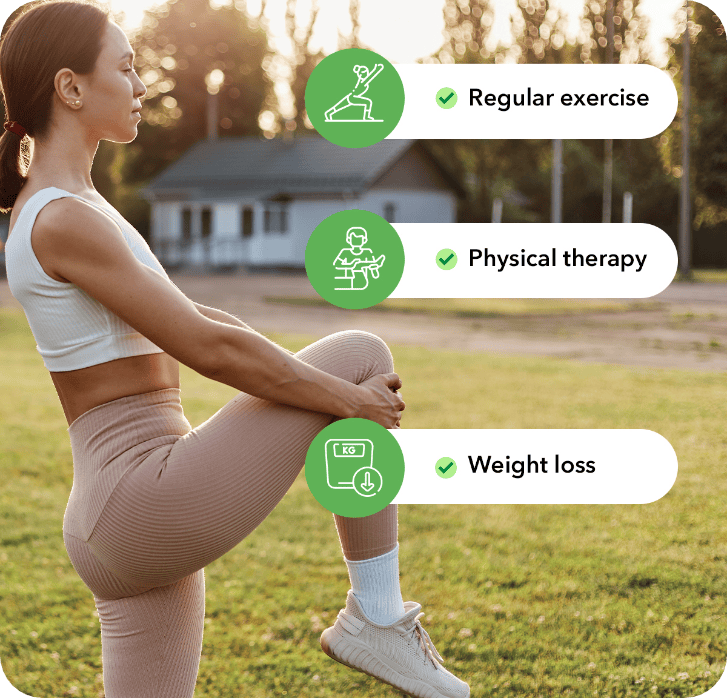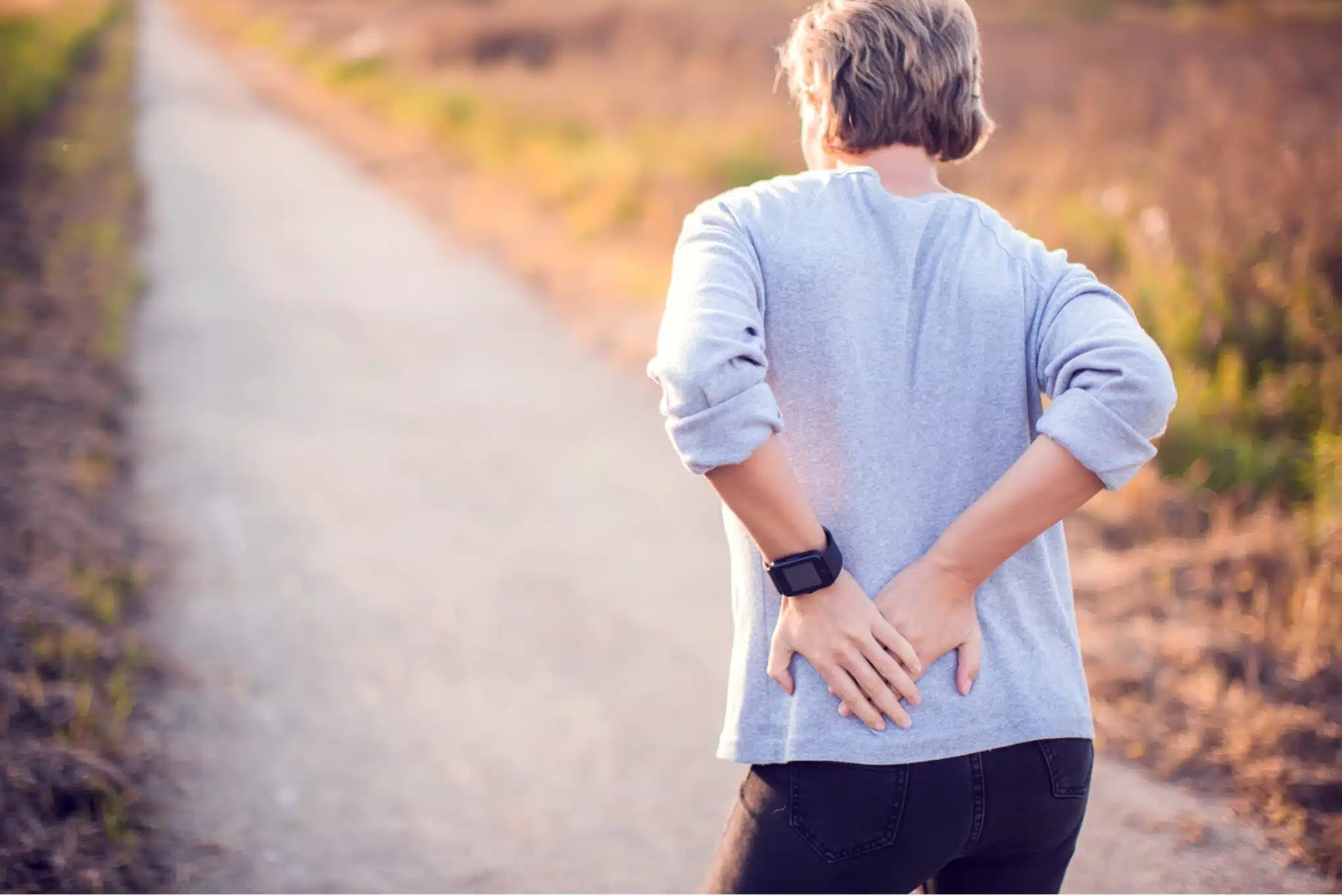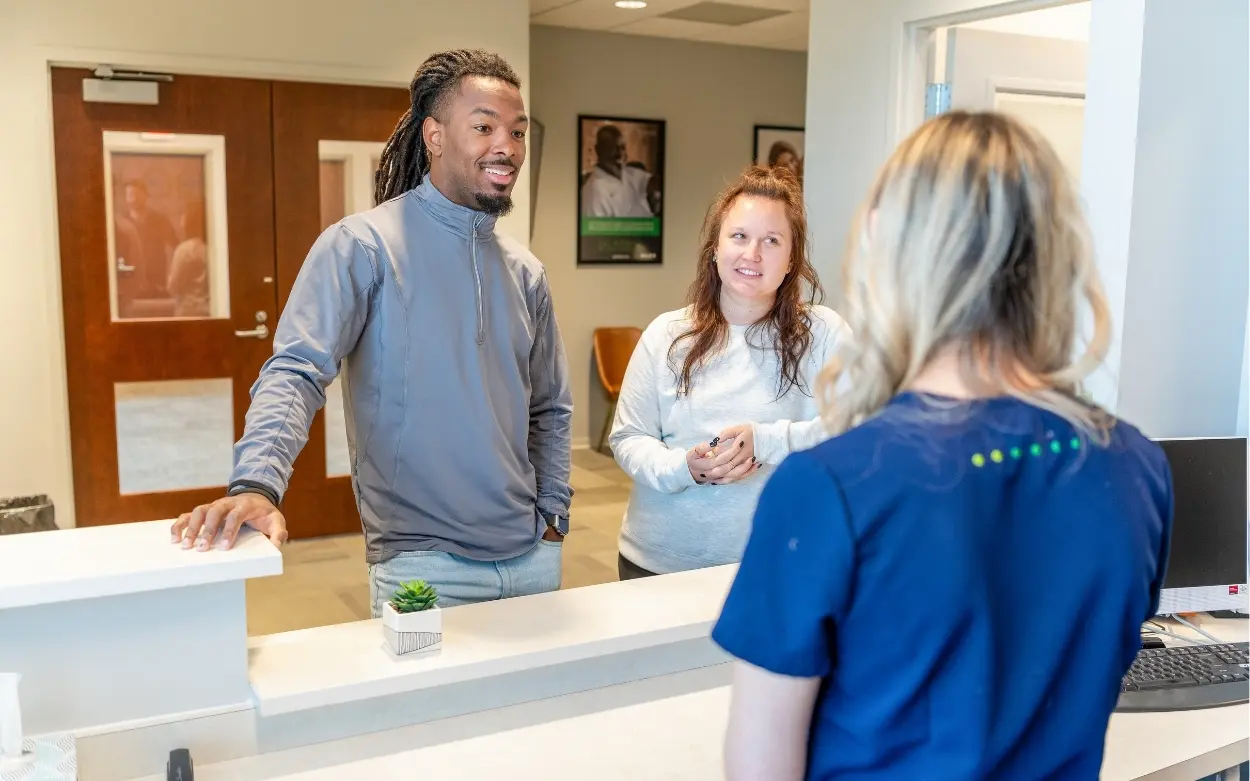There can be any number of reasons you’re dealing with hip pain. Whether it’s an occasional ache or unrelenting discomfort, you want to know what’s causing it and how to fix it.
Hips have a big job. They are complex ball-and-socket joints and the largest weight-bearing joints of the human body. Hips connect the thigh bone to the pelvis, support your body’s weight, give your body stability, and are responsible for leg mobility.
Symptoms of Hip Pain in Women
If your hips hurt, it may also be affecting your thighs and knees. Pain in the hips, back, and legs could be either a dull, achy feeling or sharp, stabbing pain. You may feel stiffness in the hips and experience clicking, popping, or grinding sensations within the hip joint when you walk. The pain may cause you to limp — putting more work on the leg, back, and abdominal muscles, which may, in turn, cause muscle soreness and pain.
Treatments
- Depending on the severity of your injury or pain, your healthcare provider may encourage you to rest and modify your daily activities.
- You may have to get around with crutches, a cane, or a walker for a little while to reduce stress on the hips. A specialist could suggest wearing orthotic devices like shoe inserts for alignment issues.
- A lot of people find physical therapy beneficial to reduce pain. Specific exercises and stretches can improve strength and mobility.
- Over-the-counter pain relievers, such as acetaminophen or nonsteroidal anti-inflammatory drugs (NSAIDs), may help alleviate mild to moderate hip pain.
- If your condition is severe, surgical intervention may be necessary. Your provider may prescribe something for pain and inflammation.
How Do I Know if My Hip Pain is Serious?
There is cause for concern if you have intense or severe pain that inhibits your ability to walk, bear weight, or if your hip pain is consistent with a fall, accident, or injury. This could potentially mean your hip is fractured or dislocated. Be attentive to any redness, warmth, or swelling—that’s the body’s telltale sign that your pain is a big deal. A few other signs to be aware of — If your range of motion is limited or if you feel any numbness or tingling in the upper leg or hip area, or if your pain is persistent and gets worse despite you resting it — it’s time to see your provider.
Keep in mind, hip pain in women could be referred pain from a number of other conditions, like sciatica, kidney stones, appendicitis, endometriosis, or ovarian cysts. These are conditions that should not be ignored.
A good rule of thumb is that if you are experiencing pain that significantly affects your daily activities or quality of life, it’s time to visit your provider. A healthcare professional will likely utilize imaging and bloodwork to determine the cause of your pain.

Common Hip Pain Causes — Female
Women are more prone to having hip issues than men, for several reasons. Anatomically, the body of a female has a wider pelvis than a male, which can make the joint less stable. Female hormones play a factor, creating better flexibility in joints, which, conversely, can cause greater injury. The Cleveland Clinic suggests these additional causes of hip pain in women.
- Osteoarthritis is a degenerative joint condition that can affect the hip joint. It involves the breakdown of cartilage, causing pain, stiffness, and reduced range of motion. Osteoarthritis is more common in older women.
- Bursitis is the inflammation of the fluid-filled sacs (bursae) that cushion the hip joint. Repetitive movements, overuse, or injury can lead to bursitis, resulting in pain, tenderness, and swelling in the hip area.
- Tendinitis occurs when tendons around the hip joint become inflamed due to repetitive stress or overuse. It can cause pain and discomfort, especially during movement or physical activity.
- Hip fractures are more common in older women, particularly those with osteoporosis (reduced bone density). A hip fracture usually causes sudden and severe pain, difficulty walking or bearing weight on the affected leg, and swelling or bruising around the hip area.
- Hip dysplasia occurs when the hip bones do not fit together properly, leading to abnormal contact between the bones during movement. This can result in hip pain, stiffness, and limited mobility, particularly during activities that involve flexing the hip.
- Some gynecological conditions, such as endometriosis or ovarian cysts, can cause pain that radiates to the hip area. These conditions may be associated with menstrual cycles and can lead to chronic or cyclical hip pain.
- Strains or injuries to the muscles, tendons, or ligaments around the hip joint can cause pain and discomfort. This can result from sudden movements, overexertion, or trauma.
- Conditions like sciatica or nerve entrapment can cause radiating pain from the lower back or buttocks down to the hip area. Nerve-related pain may be accompanied by numbness, tingling, or weakness.
The QC Kinetix Difference
At QC Kinetix, our goal is to restore your daily activities and quality of life without surgery. We provide non-surgical hip pain treatments using regenerative medicine therapies that utilize natural biologics to help relieve your hip discomfort, especially if your hip issues are caused by osteoarthritis. Our biologic therapies have proven to be among the safest and most effective alternatives to surgery for the complications of arthritis.
When you schedule your free consultation with us, we take time to thoroughly discuss your options to give you the highest quality care.


